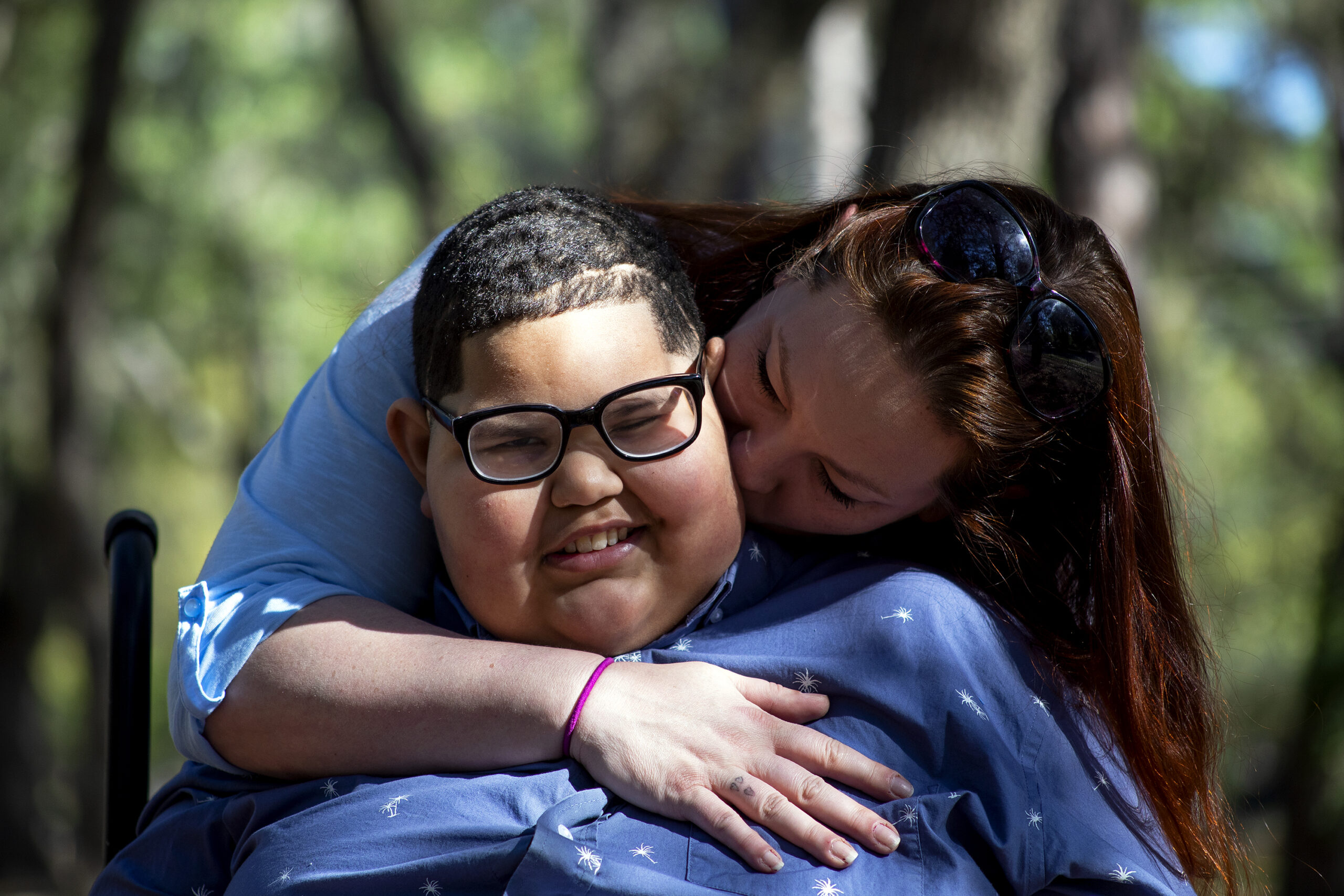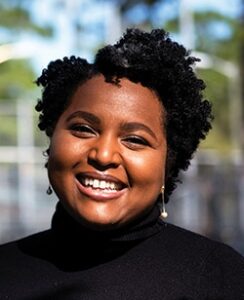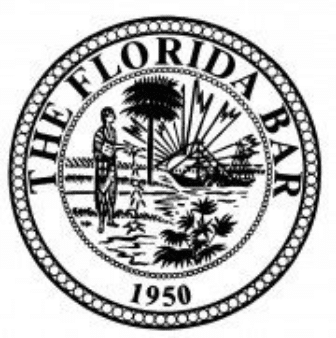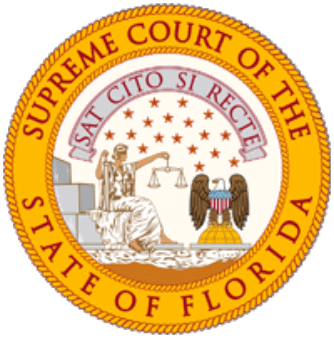What started as playing in the pool with his siblings on Memorial Day turned into a life-altering emergency room trip for two-year-old TJ Johnson. After getting accidentally bumped in the head, TJ’s eye began to wander, and he was rushed to the emergency room. There, doctors found a craniopharyngioma – a brain tumor near TJ’s pituitary gland.
“For the first year after diagnosis, he had three brain surgeries and did proton beam radiation,” Jordona Johnson, TJ’s mother, said. “The tumor kept coming back, getting more and more aggressive, so we ended up being transferred to St. Jude Children’s Hospital.”
By the time TJ was five, he’d had two more surgeries. During his fifth surgery, he suffered several strokes and spent a month in the hospital learning how to walk, talk and eat again.
“He actually recovered pretty quickly from that, but it caused a lot of other medical problems,” Johnson, a property manager who writes novels in her spare time, said. “[He has] weakness on his right side. He has a muscle movement disorder called dystonia; it aggravated the dystonia. The surgery also caused his hypothalamic obesity to get pretty aggressive and out of control so he gained a lot of weight very quickly, which limited his mobility and caused additional health issues.”
Now 11, TJ continues to deal with side effects from the benign tumor including diabetes insipidus, Addison’s disease and seizures.
“He’s in pain a lot. He can walk a little bit, short distances, but it’s painful,” Johnson said. “He doesn’t sleep well. He’s also developmentally delayed. So it’s really hard for him to understand why he can’t do normal things like other kids.”
Through his struggles, TJ has found joy in video games, art, and most importantly, school, his favorite thing.
“He loves going to school,” Johnson said.
But, there were more barriers to TJ going to school than Johnson could imagine. When their family moved to Gainesville, Alachua County Public Schools could not find an appropriate class for TJ for 21 days. And, once he was placed, Johnson was told she would have to provide his transportation.
“So, I’m responsible for dropping him off and picking him up at school every day, in the middle of work,” Johnson said.

Once at school, TJ was legally afforded accommodations that were spelled out in his Individualized Education Program (IEP). But, Johnson found that school staff often did not adhere to or even know about TJ’s accommodations. Additionally, she found that the school nurse didn’t have access to TJ’s records.
“He needed to have a safe environment to maneuver his wheelchair, and he also needed for the staff to be aware of his medical conditions and his symptoms so that he could be sent to the nurse’s clinic or I could be called if needed,” Johnson said.
Frustrated and concerned for TJ’s safety, Johnson began researching how to improve his situation. During an internet search, she found Southern Legal Counsel (SLC), a Florida Bar Foundation grantee. SLC’s legal work on behalf of children has been funded by Foundation Children’s Legal Services grants since 1999.
SLC also serves children with chronic health conditions through its Healthy Kids Medical-Legal Partnership (MLP) with UF Health Pediatrics, taking referrals for health harming legal needs from the Severe Asthma Clinic, Diabetes Clinic, Sickle Cell Clinic, and Pediatric Oncology.
Since its inception, the MLP has assisted pediatric patients and their families on more than 120 cases. SLC lawyers advocate for appropriate school accommodations and services, work to avoid truancy proceedings, represent families in eviction and guardianship proceedings, and secure pro bono counsel to assist families with adoption proceedings and asylum petitions.

Johnson was connected to SLC lawyer Abigail Adkins, who immediately began advocating for TJ. Under the Individuals with Disabilities Education Act, public schools are obligated to provide accommodations that ensure a free and appropriate education to medically fragile children like TJ. Adkins and SLC went to work coordinating IEP meetings with TJ’s school and facilitating access to his medical records.
“Abigail is great,” Johnson said. “She’s been so helpful in going to all the IEP meetings with me, going over any concerns and questions I have. If there are issues with the school, she is very prompt in reaching out and getting things sorted out. She’s been truly a blessing in helping me with all of this.”
At the onset of COVID-19, the school system transitioned to remote learning, and SLC helped the Johnsons obtain all of the necessary resources for TJ to learn from home.
And then, when students returned to school, SLC advocated for the school district to put in place the necessary precautions to ensure that TJ, who is immune-compromised, could safely participate in class, including updating student evaluations, incorporating his nursing plan into his IEP, and placing the school district on notice as to deficits in staff training and implementation of the IEP.
Had SLC not been there to help, “we would probably be in a terrible situation,” Johnson said. “I would probably still be fighting with the school and getting them to comply with the IEP plan. There would probably still be staff members who are dealing with him on a daily basis who hadn’t even read over his IEP plan or his medical files.
“It is imperative to have an advocate to help you because with all the medical things that you’re dealing with on top of school, it is overwhelming. And it’s incredibly difficult to manage all of it on your own. Understanding all the legalities of everything and your rights… it’s not clear, it’s not made easily accessible to you. It’s something that you have to fight to get or fight to learn. And just having that advocate is the greatest resource I’ve been given since he started school.”
In December 2023, The Florida Bar Foundation changed its name to FFLA. Posts prior to this date contain our former name.




